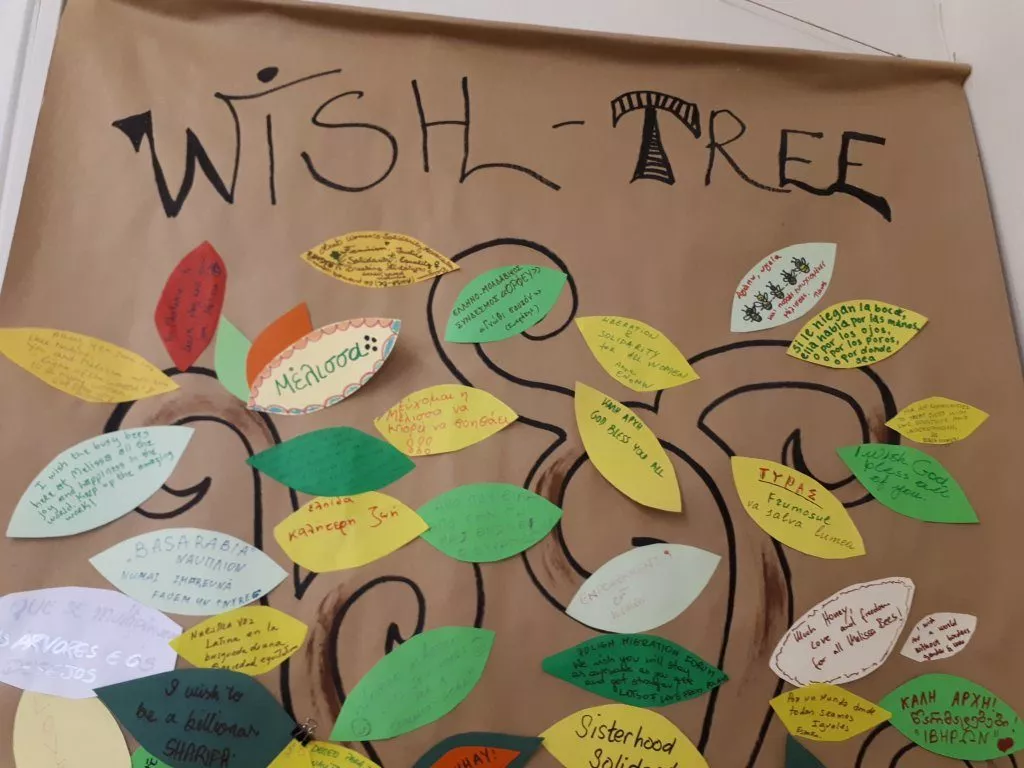
Name of the organization: Melissa Network
Website: https://melissanetwork.org
Brief description of the organization
Melissa is a network for migrant and refugee women living in Greece. It aims to promote empowerment and active citizenship, to create and sustain bonds, and to build a bridge of communication with the host society. Founded in September 2014 with the direct involvement of migrant women leaders, it has members from 45 countries who live and work in Greece. It operates on the basis of a common platform, a hub where networks and individuals can meet, share their concerns and ideas, and support each other in the pursuit of their common goals. The name ‘Melissa’ stems from the Greek word for honey-bee. It stands for the women who have come here from all over the world, bringing along skills and talents, dreams and ideas, unique stories and extraordinary strengths. They are agents of change for their own lives, their families, their societies, as well as for the society that hosts them. Melissa’s vision of society is not as a collection of isolated cells, but as a beehive of creativity, communication and exchange. Our aim is to motivate migrant and refugee women and engage them in the public sphere, in order to be the change they wish to see.
Problem addressed by the good practice
Enhancing the Integration of Women, Beneficiaries of International Protection by Development and Implementation of Multifaceted Integration.
Target groups
Social workers, Migrant Women
Summary of the good practice
This manual is prepared by Melissa: Network of Migrant Women in Greece and ELIAMEP, the Hellenic Foundation for European & Foreign Policy as a part of the ECfunded INTEGRA-TRAIN project for refugee and migrant women. Melissa Network believes in the necessity of a comprehensive approach with a focus on empowerment and active engagement. This manual reflects the work taking place daily as an example of an integrative, community-based practice. Melissa’s philosophy and approach to integration is based on two premises:
• The idea that integration is a process of mutuality which cannot take place in spaces
of exclusion. The module presented here reflects this practice: all activities are taking
place within the Melissa premises, in the city centre, in close interaction with the migrant
communities and the local population, in an inclusive and welcoming space.
• The idea that integration is a process, long-term, non-linear and holistic, and not a
lesson to be taught to or imposed on migrants and refugees. Melissa’s approach
aims to support people in developing their life-strategies and contribute to social
cohesion, in the context of a community of solidarity, learning and sharing. As such
the needs and inquiries of members and participants, as well as their curiosity and
their creativity co-shape the trainings and activities.
Evaluation
The manual presents:
• The seven-strand integration model developed by Melissa Network.
• Practical guidelines with examples and activities for the trainings.
It is accompanied by a handbook with useful information and educational material
which can be used by trainers as well as trainees during class or in one-to-one sessions
to facilitate discussion, respond to questions and requests and offer guidelines
for a variety of processes related to the integration of women migrants and refugees.
Recommendations
The manual is a flexible, adaptable tool, with a logic of transferability, offering appropriate resources to cover specific requests and needs, within and beyond the Greek context.
Resources
The manual (in English) can be downloaded from the official website of Melissa Network
